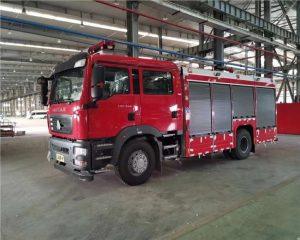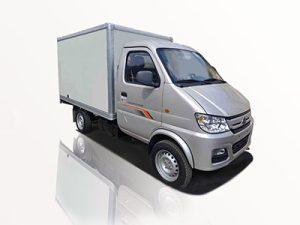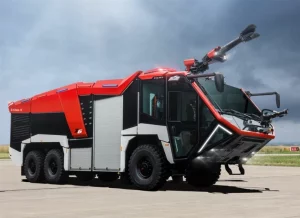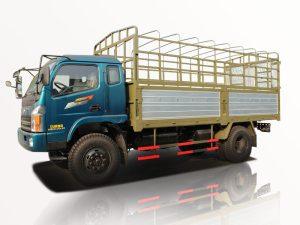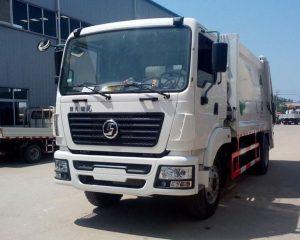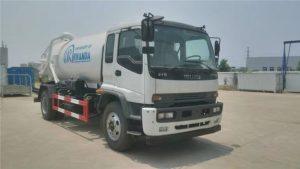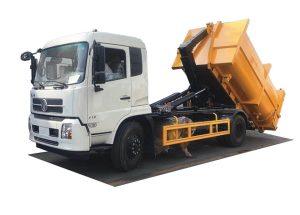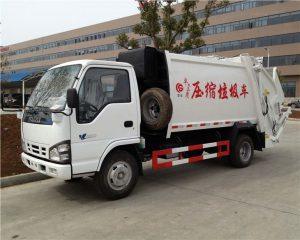Monday to Saturday - 8:00 -17:30
Waste Disposal Truck: The backbone of effective waste management
Introduction
In the modern world, waste management has become an essential part of urban and rural environments alike. Among the various components that contribute to an efficient waste management system, the waste disposal truck stands out as a key player. This article will explore the significance, functionality, and types of waste disposal trucks, their operational aspects, and best practices for effective waste management. Our goal is to provide a thorough understanding of waste disposal trucks and how they contribute to maintaining a clean and sustainable environment.
The Importance of Waste Disposal Trucks
Waste disposal trucks play an instrumental role in ensuring that waste is collected, transported, and processed efficiently. Without these specialized vehicles, communities would struggle with waste accumulation, leading to environmental and health hazards. Here are some reasons why waste disposal trucks are vital:
1. Efficient Waste Collection
Waste disposal trucks are designed to handle large volumes of waste, making them much more efficient than manual collection methods. They enable municipalities to streamline waste collection services, ensuring that waste is picked up regularly.
2. Health and Safety
By providing a means of transporting waste away from populated areas, waste disposal trucks help reduce health risks associated with stagnant waste, including pests and diseases. They allow for safer disposal methods that protect public health.
3. Environmental Protection
Proper waste disposal using specialized trucks ensures that waste is sorted and sent to appropriate recycling or disposal facilities, mitigating environmental damage. This is crucial for preserving ecosystems and promoting sustainable waste management practices.
Types of Waste Disposal Trucks
Different types of waste disposal trucks are designed for varying types of waste material. Here’s a breakdown of the most common types:
1. Compaction Trucks
Compaction trucks use hydraulic systems to compress waste, allowing for greater storage capacity. This type of truck is particularly useful in urban areas where space is limited, as it can transport more waste in one load.
2. Rear-Loaders
Rear-loading trucks operate with a mechanism that allows waste to be loaded from the back. Often used for residential waste collection, they are ideal for standard household waste and recyclable materials.
3. Front-Loaders
These trucks are equipped to serve commercial waste bins and dumpsters. They use robotic arms to lift containers and empty them into the truck’s hopper, making them efficient for businesses.
4. Side-Loaders
Side-loading trucks can collect waste from both sides and are designed for areas with narrow streets or busy parking situations. They are often used in residential areas to reduce the need for multiple passes.
5. Vacuum Trucks
Vacuum trucks are specialized vehicles used for collecting liquid waste, such as sewage or spills. They utilize suction to transport materials into a sealed tank, ensuring safe and sanitary waste disposal.
6. Roll-off Trucks
Roll-off trucks are designed to transport large dumpsters called roll-off containers. They are commonly used for construction debris and large waste removal projects, offering flexibility for large clean-up operations.
Features of Waste Disposal Trucks
Understanding the features of waste disposal trucks can provide insights into their efficiency and operational benefits:
1. Payload Capacity
The payload capacity determines how much waste a truck can carry. Higher payloads reduce the number of trips required to collect waste, saving time and fuel costs.
2. Compaction Ratio
The compaction ratio indicates how much waste a truck can compact. A higher ratio allows for more efficient waste collection, reducing landfill space needs.
3. Fuel Efficiency
Fuel-efficient waste disposal trucks contribute to lower operational costs and reduce carbon emissions. Choosing eco-friendly models can have a positive environmental impact.
4. Safety Features
Modern waste disposal trucks come equipped with advanced safety features such as cameras, alarms, and GPS tracking systems. These enhance driver safety and ensure compliance with regulations.
5. Durability
Waste disposal trucks are built to withstand harsh conditions, including heavy loads and challenging terrains. Their durability is essential for long-term operations.
Operational Considerations for Waste Disposal Trucks
Efficient operation of waste disposal trucks requires careful planning and management. Here are some key considerations:
1. Route Optimization
Planning collection routes efficiently can minimize travel time and fuel usage. Utilizing GPS technology to optimize routes can enhance overall collection strategies.
2. Maintenance
Regular maintenance of waste disposal trucks is vital to ensure longevity and reliability. A well-maintained fleet can reduce breakdowns and improve operational efficiency.
3. Training for Drivers
Providing thorough training for drivers in safety protocols and truck operation can enhance safety and reduce accidents. Proper training also ensures compliance with local regulations.
4. Waste Sorting
Incorporating waste sorting processes at the point of collection can improve recycling rates and reduce the amount of waste sent to landfills. Educating the public about proper waste disposal is essential.
5. Compliance with Regulations
Waste disposal regulations vary by jurisdiction. Staying updated on local laws ensures compliance and helps to avoid fines or legal issues.
Best Practices for Waste Disposal Management
Implementing best practices in waste disposal management can significantly improve efficiency:
1. Use Technology
Incorporating technology such as route planning software and waste tracking systems can streamline operations. Smart waste bins that monitor fill levels can also optimize collection schedules.
2. Community Engagement
Engaging with the community can foster better waste disposal habits. Hosting educational workshops and providing resources can encourage residents to participate in sustainable practices.
3. Adopt Sustainable Practices
Utilizing fuel-efficient or electric waste disposal trucks can reduce carbon footprints. Implementing recycling initiatives and composting programs also contributes to sustainability.
Economic Impact of Waste Disposal Trucks
The economic implications of waste disposal trucks extend beyond operational costs:
1. Job Creation
Waste disposal services create a variety of jobs, from drivers to maintenance staff, contributing to local economies. The sector also stimulates economic growth through service contracts with government entities.
2. Cost Savings for Municipalities
Investing in modern waste disposal trucks can lead to long-term cost savings for municipalities through efficiency improvements and reduced landfill fees.
3. Support for Recycling Industries
By improving waste collection, disposal trucks can enhance recycling rates, leading to job creation in recycling industries and community programs.
Future Trends in Waste Disposal Trucks
The waste management industry is continuously evolving. Here are some trends shaping the future of waste disposal trucks:
1. Automation and Robotics
Emerging technologies, such as automated collection robots, may enhance operational efficiency and reduce labor costs in the future.
2. Electric and Hybrid Trucks
With increasing concerns about emissions, the adoption of electric and hybrid waste disposal trucks is growing, offering an eco-friendly alternative to traditional diesel-powered vehicles.
3. Smart Waste Management
Advancements in IoT technology can facilitate smarter waste management solutions, providing real-time data on waste levels and optimizing routes dynamically.
FAQ Section
1. What types of waste can waste disposal trucks collect?
Waste disposal trucks can collect a range of materials, including household garbage, commercial waste, recyclable materials, and liquid waste such as sewage, depending on their design and capabilities.
2. How often do waste disposal trucks pick up waste?
The frequency of waste collection varies by municipality and can range from daily to weekly pickups, depending on the volume of waste generated and local waste management policies.
3. What is the average lifespan of a waste disposal truck?
The average lifespan of a waste disposal truck is typically between 10 to 15 years, depending on usage, maintenance, and the model’s durability.
4. How do municipalities determine the number of waste disposal trucks needed?
Municipalities assess waste generation rates, area population density, and collection frequency to determine the number of trucks required for efficient waste management.
5. Are there eco-friendly options available for waste disposal trucks?
Yes, many manufacturers are producing electric and hybrid waste disposal trucks, significantly reducing emissions and promoting more sustainable waste management practices.
6. How do waste disposal trucks contribute to recycling efforts?
Waste disposal trucks can be equipped with compartments for separate collection of recyclables, ensuring materials are sorted at the source and sent to recycling facilities for processing.


